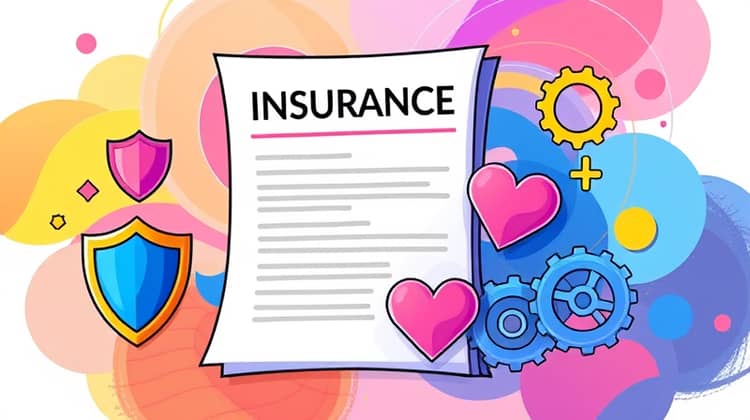Insurance Policies Uncovered: What You Need to Know About Exclusions and Riders

Navigating the world of insurance can be daunting, as it involves understanding complex terminologies and implications of various clauses. This article aims to illuminate key concepts regarding exclusions and riders, two critical components of insurance policies that can significantly influence coverage. By understanding these elements, policyholders can make more informed decisions and avoid potential pitfalls when filing claims or acquiring additional coverage.
As we delve into the specifics of exclusions and riders, it's essential to appreciate how they operate within your insurance policy. Exclusions refer to situations or circumstances that are not covered, while riders are endorsements that modify the coverage, often adding specific benefits. Understanding both will help you tailor your insurance to better suit your needs.
Understanding Insurance Policies

Insurance policies are contracts designed to provide financial protection against specific risks. Before purchasing any policy, it's crucial to comprehend the terms within it, especially the exclusions and riders. These determine what is included in your coverage and what is not, ultimately impacting your financial safety net in times of need.
If someone fails to understand their insurance policy, they may think they have full coverage when in fact they don’t due to overlooked exclusions. This misunderstanding can lead to disappointment when a claim is denied because the event was listed as an exclusion. Understanding the details of a policy can therefore save both money and headaches in the long run.
- Definitions and purposes of exclusions
- Importance of understanding what is and isn't covered
- Critical role of riders in modifying coverage
Recognizing these elements can empower policyholders in making wiser choices regarding their insurance needs. Thoroughly reading and evaluating your policy can also help ensure that you secure adequate protection against unforeseen circumstances.
Why Exclusions Matter

Exclusions are crucial to any insurance policy, as they outline specific circumstances under which the insurer will not provide coverage. Understanding exclusions helps policyholders grasp the extent of their coverage and the potential limitations one must accept. Not being aware of exclusions could lead to unexpected out-of-pocket expenses during claim processes.
Common Exclusions in Various Insurance Policies

Insurance policies typically contain various exclusions that can differ widely among types of insurance, such as health, auto, and homeowners insurance. Familiarizing oneself with common exclusions helps demystify the specifics of coverage, ensuring one knows what to expect in vulnerable situations.
For instance, many health insurance plans exclude certain procedures deemed non-essential or cosmetic, and auto insurance may not cover damage resulting from racing or other specified activities. It's crucial to read the fine print to avoid surprises when applying for claims.
- Pre-existing conditions (health insurance)
- Acts of God (homeowners insurance)
- Intentional damage or fraud
- Certain types of liability (auto insurance)
Understanding these exclusions can prove invaluable when evaluating insurance options and securing appropriate coverage that comprehensively meets one's needs.
How to Identify Exclusions in Your Policy

Identifying exclusions requires careful review of the policy document. Insurers usually include a dedicated section that lists all exclusions, often titled 'Exclusions' or 'What is Not Covered.' Familiarizing yourself with this section is crucial to accurately assess coverage.
Reading your insurance policy thoroughly and asking questions while seeking clarifications can assist in demystifying any uncertainties surrounding exclusions.
- Read the full policy document carefully
- Look for the 'Exclusions' section
- Highlight any confusing or problematic areas
- Seek clarification from your insurance agent if needed
- Ensure understanding before signing the policy
Proactively addressing exclusions can prevent future complications with claims and enhance financial safety.
What Are Riders?

Riders are additions to an insurance policy that provide separate benefits or modify the terms of your coverage. They can be particularly valuable for tailoring a policy to reflect specific needs that regular terms might not cover. In essence, riders allow you to customize your policy to offer additional protection or benefits.
For example, a critical illness rider can be attached to a life insurance policy, providing an advanced payout if the policyholder is diagnosed with a serious illness. Understanding riders enables you to maximize the benefits of your insurance plan.
How Riders Work

Riders function as endorsements that enhance the primary policy. The insured pays additional premiums for riders, and in turn, these riders create the potential for greater financial recovery in specific situations. They cannot be considered standard, as each rider will have its terms and conditions that could affect the primary policy—offering additional coverage, special provisions, or other benefits.
Types of Riders

There is a variety of riders that facilitate customization of insurance policies based on individual needs. Riders vary in purpose and can help A policyholder refine their coverage and prepare for various scenarios that could potentially adversely affect their financial well-being.
Some riders focus on enhancing life insurance, while others may improve health insurance or home insurance, making them versatile yet important components of an insurance policy.
- Accelerated death benefit rider
- Waiver of premium rider
- Critical illness rider
- Accidental death and dismemberment rider
- Long-term care rider
Incorporating appropriate riders into a policy can help protect against various unforeseen incidents and customized needs.
Why Riders Are Important

Riders are essential because they empower policyholders to address specific needs that typical coverage may not satisfy. This adds an invaluable layer of protection against risk variations and life changes that standard insurance packages may not encompass.
For instance, adding a disability rider to your life insurance policy gives enhanced security should you become unable to work for medical reasons.
How to Add a Rider to Your Policy

Adding a rider usually occurs at the time of policy purchase, but many insurance providers allow riders to be added later as well. If you feel that your coverage needs have shifted since acquiring the original policy, it’s vital to contact your insurer promptly.
Insurers often require a health assessment or additional information that may be tied to the new rider when making this adjustment; thus, understanding the policy evaluation process ensures a smoother integration of additional coverage.
- Contact your insurance provider
- Discuss your needs and available riders
- Complete any required assessments or evaluations
- Review additional terms and conditions
- Confirm the addition of riders in writing
Adjusting your insurance with riders can enhance your financial protection and peace of mind for future uncertainties.
Tips for Dealing with Exclusions and Riders

Effectively managing exclusions and riders can lead to improved insurance outcomes. Regular reviews of your policy ensure you stay informed about changes in coverage and the implications of any exclusions or riders included in your plan.
It's advisable to communicate openly and regularly with your insurance agent, as they are valuable resources in understanding how your policy aligns with your current needs and goals.
- Schedule regular policy reviews
- Document any changes in coverage needs
- Engage with your insurance agent for guidance
- Ask questions to clarify exclusions and riders
- Consider additional riders as circumstances change
Being proactive about exclusions and riders can significantly bolster overall financial stability.
Conclusion

In summary, understanding the implications of exclusions and riders within insurance policies plays a crucial role in protecting oneself financially. A thorough comprehension can prevent unpleasant surprises during claim time and enable individuals to tailor their coverage to fit their specific situations.
Invest time in evaluating your insurance needs, reading the fine print, and thoughtfully considering any exclusions or riders relevant to your circumstances. By doing so, you'll cultivate a more comprehensive and reliable insurance strategy.






